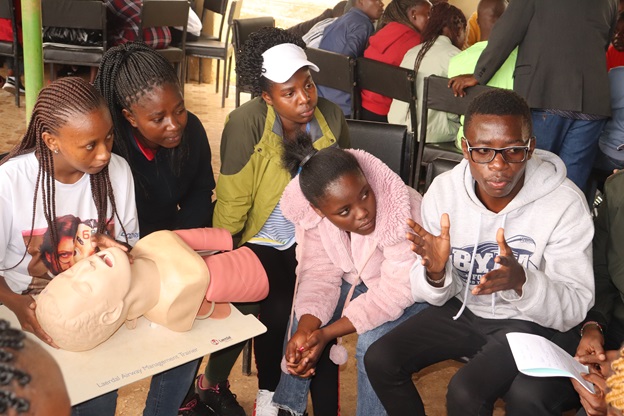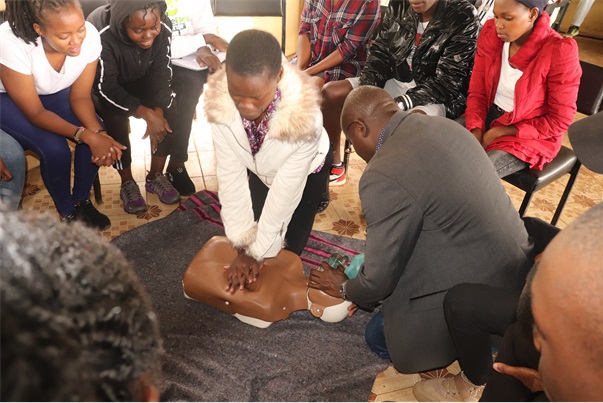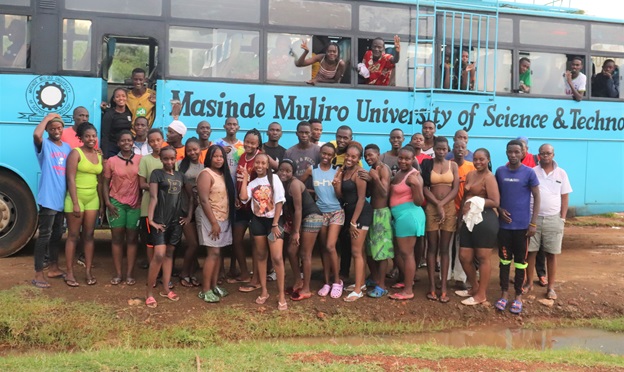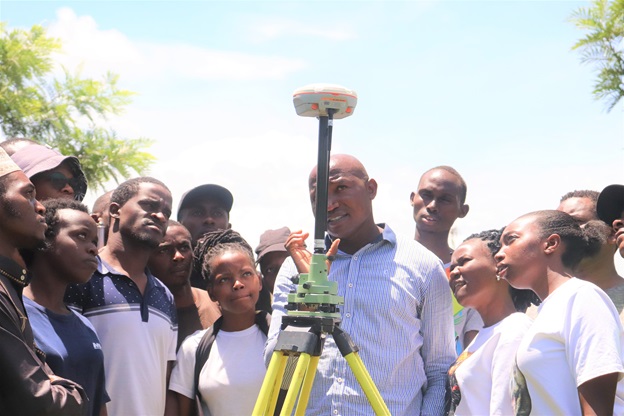The School of Disaster Management and Humanitarian Assistance (SDMHA) is committed to equipping its students with practical skills in disaster management to suit the dynamic job industry. This was evident during a five-day Field Skills Practicum which was conducted from 29th April to 3rd May, 2023 in Budalangi. This is an experiential learning that is undertaken during the second semester of year two (2) of every academic year as a precursor to field attachment. Industry experts are incorporated to facilitate hands-on demonstrations and training in different areas of disaster management for students. The course is mandatory since it equips them with first–hand experience in life skills; survival and adaptability; search and rescue as well as leadership skills.
The practicum involved third-year students pursuing Bachelor’s Degrees in Geospatial Information Science, Conflict Resolution and Humanitarian Assistance, Disaster Mitigation and Sustainable Development, Disaster Preparedness and Engineering Management, and Emergency Management and Humanitarian Assistance.

A section of the students during First-Aid Practice and Trauma Management group discussion.
Commenting on the field skills practicum, the Dean SDMHA, Dr. Ferdinand Nabiswa who is also the course lecturer pointed out that the purpose of this course is to provide practical emergency management experience in a supervised professional setting that is geared towards the integration of theory and practice.
“The practicum is the best opportunity for students to begin to interact with the professional practitioner as well as the community. It gives them a safe learning environment to build experiences relevant to the work of an emergency management professional. At the end of this exercise, the students will be required to submit a report and an evaluation will be conducted on the application of concepts, principles, and skills acquired,” stated Dr. Nabiswa.
Mr. Stephen Wasike demonstrating Hazard mapping.
One of the facilitators, Mr. Stephen Wasike- a Geographic Information System (GIS) Expert, took the students through Hazard Mapping and Application of GIS in Data Collection and Analysis, Managing Water Shade Areas, and Mapping out Hotspot Disaster Areas. He noted that GIS in disaster management acts as a tool for supporting decisions.
“The application of GIS in disaster management helps in understanding the nature of the disaster and solving complex management problems. In addition, decisions can only be made by analyzing the different GIS layers. Management and planning of disasters, as well as handling disastrous conditions are currently useful, with the help of geospatial and socio-economic data,” said Mr. Wasike.

A demonstration of Trauma Management by one of the students.
Further, the practicum encompassed various activities including; Rescue Operations, Mass Evacuation, Search Techniques in Different Disasters, Teambuilding, Crime Scene Management, First-Aid Practice, and Trauma Management, as well as a Visit to Rescue Centres. The students also visited various parts of Budalangi to learn about the effects of floods along River Nzoia.
The students were accompanied by the Chairperson of the Department of Emergency Management Studies, Dr. Nicholas Ombachi, and other members of staff including Mr. Leonard Nyongesa, Ms. Betty Opilo, Ms. Janerose Kimuma, and Mr. Peter Otsianda.

Students after the water rescue session in Budalangi.
Certainly, Disaster Management is a field that requires hands-on learning to truly master. Although classroom learning provides a vital foundation, it's the practical application of skills and knowledge that distinguishes successful managers. By providing students with real-world opportunities to observe, analyze, and solve societal problems, these experiences are invaluable for preparing them to thrive in their careers.
By Linet Owuor





